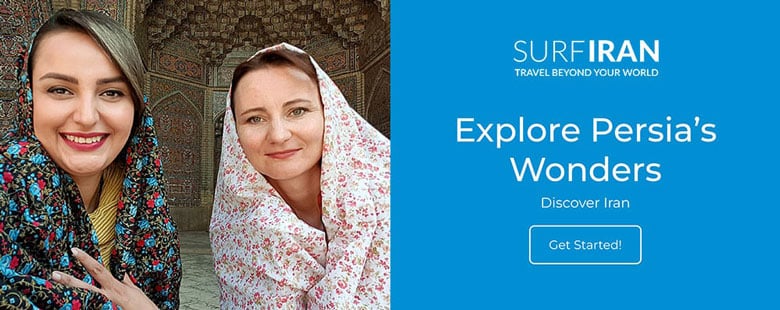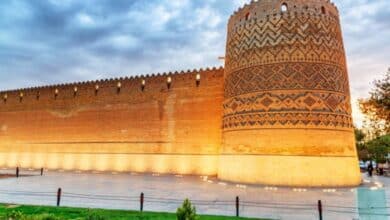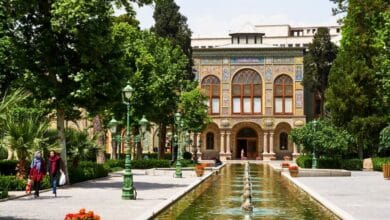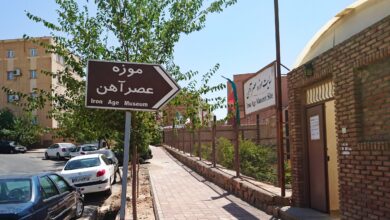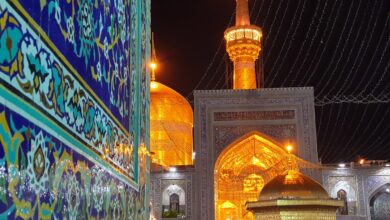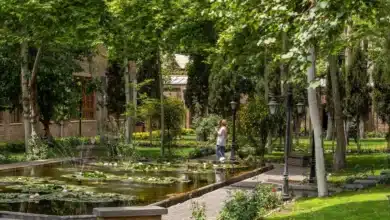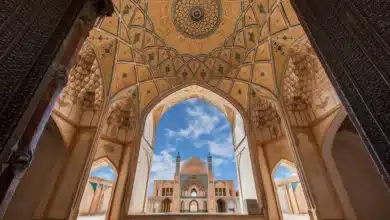Meymand: An Incredible Iranian Rocky Village
Experience the Captivating Beauty and Rich History of Meymand Village
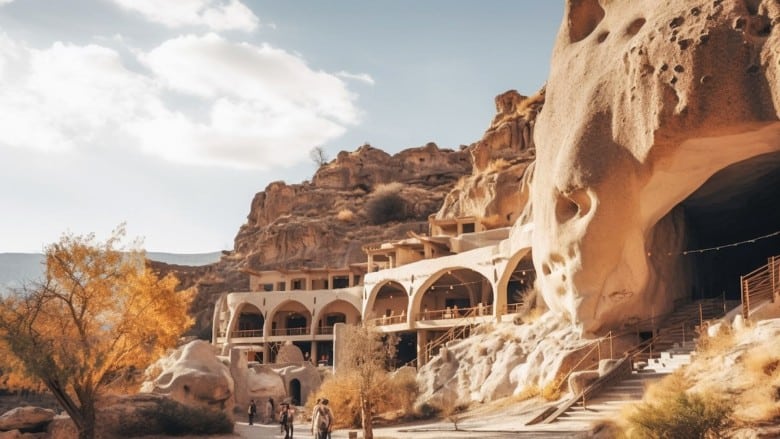
The village of Meymand in Kerman province, Iran has a history of over 12,000 years. One of the interesting features of this village is that it has been carved by hand by the village inhabitants, which is why it is also known as the “hand-carved village of Meymand. Due to the unique rocky architectural features of the region, it was registered as a national monument in 2001. Furthermore, in 2015, the Meymand village was registered as the 19th world heritage site of Iran and the 7th historical and natural landscape in the UNESCO World Heritage List.
This beautiful and unique village has also been awarded the Melina Mercouri Prize. This prize is awarded by the government of Greece in cooperation with UNESCO and ICOMOS to sites that have fully respected all cultural, historical and natural laws and structures.
Let’s continue to learn more about the features of this historic rocky village.
Contents
History of Meymand Village
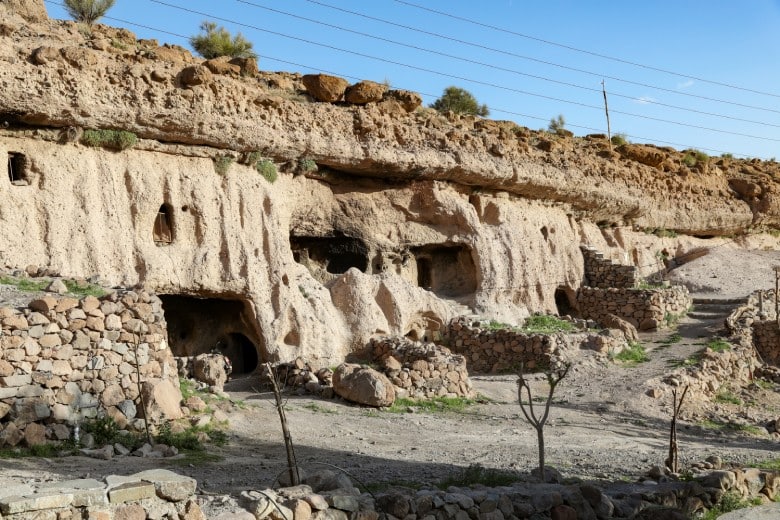
Despite its very long history, this village is still an inhabited rural settlement in Iran. Several hypotheses have been proposed regarding the history of this village. Some archaeologists attribute the rocky architectural remains to the Median people and date the village back to that era.
There is another possibility that construction of rock buildings originates from the belief of system of Mithraism. one of the beliefs of this tribe about the immortality of phenomena, and for this reason, they sanctify mountains.
On the other hand, Pottery shards dating back to the Parthian, Sassanid and Islamic eras have also been found in this village. The rock carvings in the region are also estimated to be over 12,000 years old.
Architectural Features of the Historic Village of Meymand
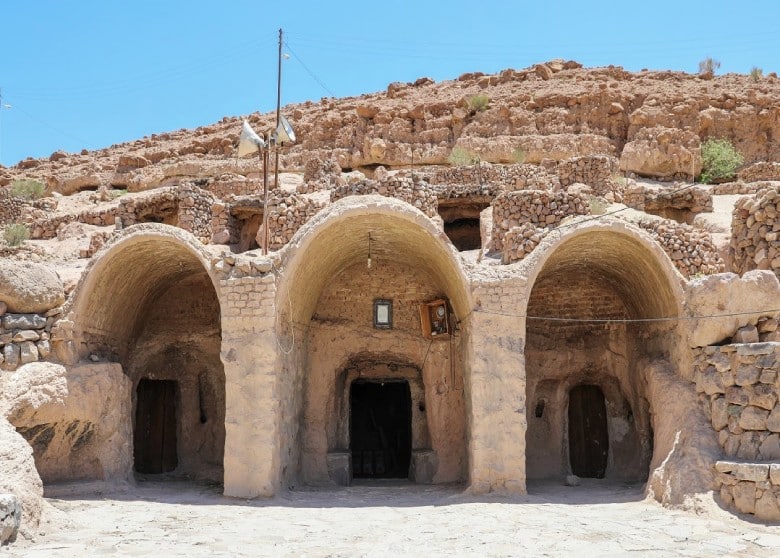
This historic village has an area of 420 square kilometers and has a unique architectural style. The buildings in this village are constructed on top of cliffs, and all of them serve a residential purpose. Interestingly, the houses in this village are not built by adding construction materials, but rather by carving into the rock and going into the heart of the mountain, the walls of the houses have been formed.
This type of construction has resulted in the roof of one house becoming the courtyard of another house. Due to this unique architecture, there are no streets or sidewalks to be seen.
Architecture of the Interior of Houses in Maymand Village
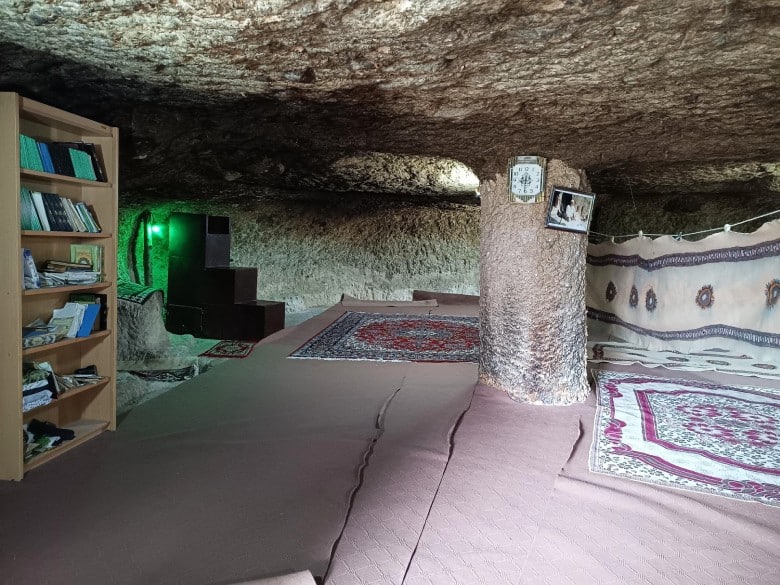
The name given to the houses stacked on top of each other in Meymand is “Kiche“. The architectural style of the Kiches has caused the building to act as an insulator against heat penetration, as the entire body of these Kiches is made of stone. In addition, they are resistant to fire, wind, and rain.
The total number of Kiches in this village is around 400 houses, which are stacked in 2 to 5 stories and have a total of 2500 rooms. The area of the Kiches is approximately equal and around 90 square meters. In front of the Kiches, there is a passage where you have to pass through to reach the door of the house. This door is shorter than usual, and you have to bend down to enter the house. Most houses have an entrance, a living room, several rooms, and a stable. Interestingly, the same carving technique has been used to create niches. That is, by carving the walls of the room, a niche-like space has been created where dishes, lamps, or other household items such as bedding can be placed.
Places of Interest in the Rocky Village of Meymand
In this beautiful village, there are sights such as a fire temple or an ethnographic museum and a traditional bathhouse, where you dear visitors can enjoy not only the architecture and the alleys’ views, but also visit these sites.
Meymand Fire Temple or Ethnographic Museum
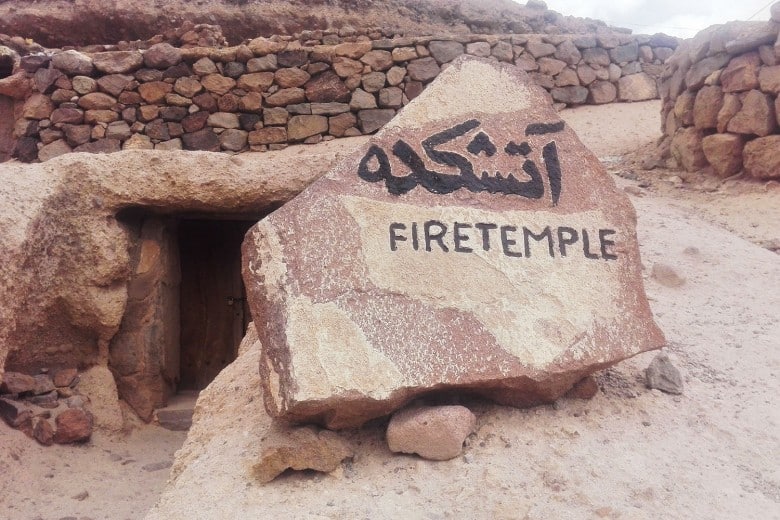
A place near the village that, according to research, was used as a fire temple in the past and is now transformed into an ethnographic museum. By entering it, you can get acquainted with the handicrafts, agricultural products, and customs of the people of Meymand.
Meymand Traditional Bathhouse
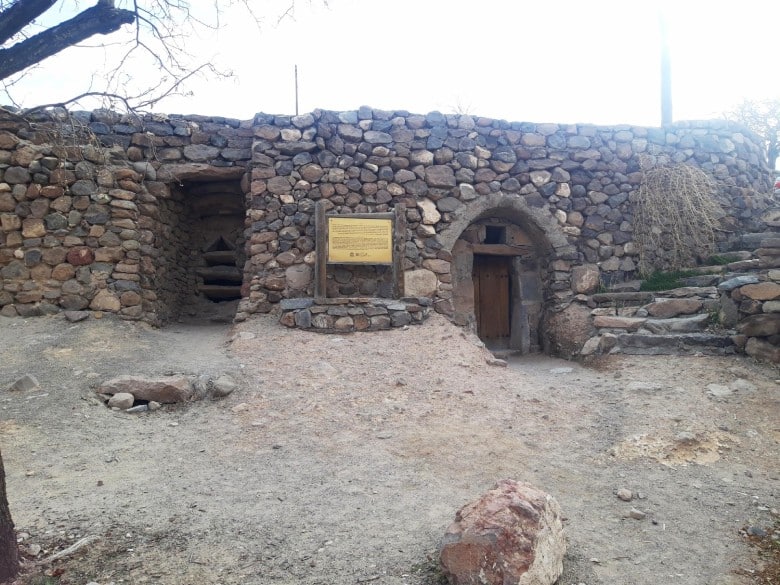
One of the most interesting ancient monuments of Meymand is its bathhouse. It is interesting to know that this bathhouse is built on rock architecture, but it still has the different sections of traditional Iranian bathhouses, such as the pool and the dressing room. In this bathhouse, there is a pool surrounded by platforms on three sides.
Currently, this bathhouse has been converted into a museum.
Meymand Mosque and School
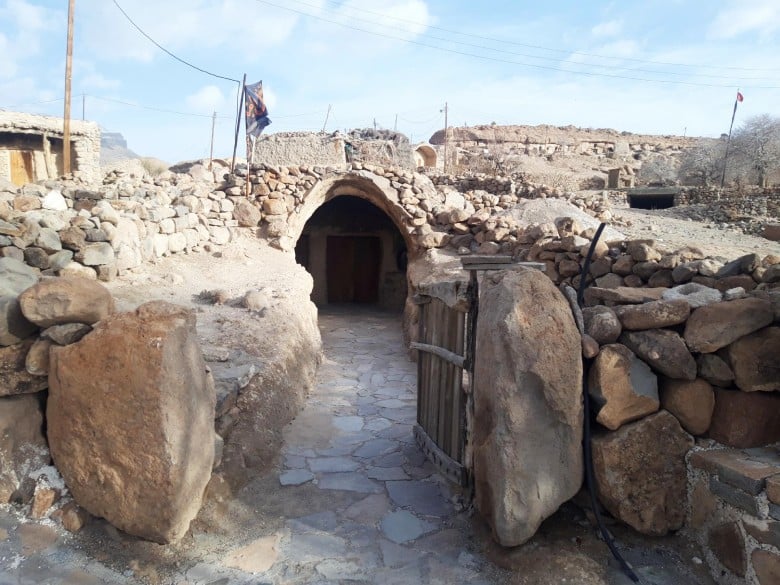
Other sights of Meymand include its mosque and school. It is interesting to know that there are no windows in the mosque, and the light is provided through the entrance. The geometric shape of the mosque is irregular, and it is built on three stone columns. The mihrab of this mosque is carved into the mountain and is 1 meter high. Meymand school also has 5 classrooms and a courtyard, where stone has been used for the partitions.
Ashkoor Gobiyeh Cave of Meymand
Around the village of Meymand, there are beautiful caves such as Ashkurgobieh and Ashkeft caves inside of which there are colorful carvings and paintings on the rocks, which are very eye-catching and interesting to see.
The Best Season to Travel to the Village of Meymand
Given the unique and distinctive architecture of this village, the best time to travel to this village is spring and summer. In the two seasons of autumn and winter, the weather in this village becomes cold and visiting the sights may become a bit difficult.
Wrap it up
The rocky village of Meymand is located in Babak County, 215 kilometers from the province of Kerman, and it has a unique architecture. This village, which is built by hand, also has historical sites. You dear guests can stay in the guest houses and eco-lodges of this village and in addition to enjoying the overnight stay in the rocky houses of this village, you can visit its other attractions.
FAQs
Where is the village of Meymand located?
The rocky village of Meymand is located in Iran, in the province of Kerman and Babak County.
What is the architecture of the houses in Meymand like?
The houses in Meymand are called Kiche, which have been carved into the mountainside by the residents of the village, in such a way that the ceiling of one house is the courtyard of another house. Inside each house, there is an entrance, aliving room, several rooms, and a stable.
What is the best time to visit the village of Meymand?
The best time to travel to this village is spring and summer. In the two seasons of autumn and winter, the weather in this village becomes cold.

